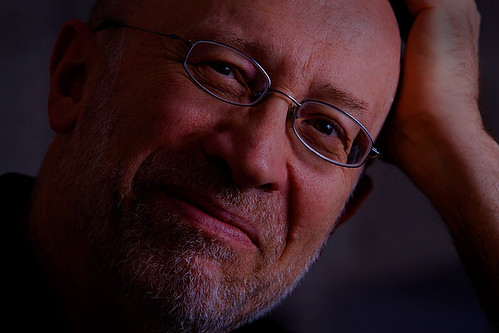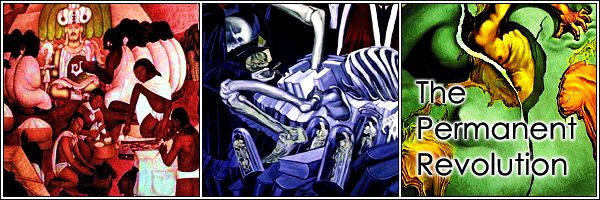An Intellectual and the Boulder of Memory
This article was also published in The Beaver under the title "The boulder of memory".

In 2008, British historian Tony Judt was diagnosed with amyotrophic lateral sclerosis (ALS), a motor neuron disease. Today, he is paralyzed from the neck down and cannot live without a wheezing breathing aid. ALS typically removes mobility but not sensation, a mixed blessing and a strange torture when on the verge of sleep one cannot reach for an itch (see Judt's moving thoughts on the subject in this short video with The Guardian). Last October, despite his paralysis Judt delivered an impassioned, two hour lecture defending welfare state. The sight, of this man under a blanket constantly pausing for air, to share the fruits of a life’s worth of reflection was at once pathetic and heroic. It inspired me to reread some of his works and try to draw out the essence of the man.
I do not want to say that Tony Judt is our greatest historian. He is not a thinker with a grand narrative or an overarching system, but is certainly a man with a method. Why care about history? For Judt, we cannot understand ourselves unless we remember where we came from. Today, we are intellectually lazy. It seems so easy now, as we recite the verses of freedom, democracy, mixed market economies and universalism; all laudable, no doubt, but it forces us to forget why often good, intelligent people became Communists or Fascists or so often chose war over peace. Why would Europeans cheer as they head towards the horrors of the trenches? Why would Russians wage war against themselves in the messianic hope and sheer terror of Communism? Why would Nazis attempt to annihilate and enslave entire races? Judt believes we have duty to remember some of this, to have the beginnings of understanding. To this end he set himself an aim of some ambition: to save the twentieth century – with all its marvels and terrors – from “the enormous condescension of posterity,” to paraphrase E.P Thompson. A man of the Left but unswervingly critical of its failings, he seems a more appropriate voice than most to redeem social democracy and the welfare state.
Though an obsessively European historian, Judt lives in the United States of America. There is something of that other great voice of reason, Stanley Hoffmann, in Judt’s choice to live, teach and write in North America. These are two men who have in part dedicated their lives to explaining Europe to Americans for whom the Old Continent is increasingly of purely touristic interest. This might have placed some constraints on Judt’s writing. He once bemoaned the “middle-brow political acceptability” of the “terribles simplificateurs” that are American public intellectuals. Indeed, one need only read a few of the cartoonish opinion pieces that grace the pages of America’s newspapers of record – those of Thomas Friedman or Charles Krauthammer for example – to understand what is meant and to shudder at what passes for “discourse”.
Yet, Judt never dumbed himself down or pandered to his audience. Many people have come under the withering criticism of his pen. The effect is devastating and memorable. The academic texts on the esoteric Marxism of Louis Althusser’s are “unreadable excursions into the Higher Drivel.” Judt writes of Tony Blair that “He conveys an air of deep belief, but no one knows in quite what.” But he is also not afraid to say things that might make him unpopular in his adopted country. He excoriated the American “Left” in a classic 2006 article on “the Strange Death of Liberal America”. In this work, Judt condemned the stunning array of liberal intellectuals who jumped onto the bandwagon of the War on Terror and the Iraq War, from opportunistic “converts” like Christopher Hitchens and Paul Berman to even thoughtful writers like David Remnick and Michael Ignatieff. They were, for Judt, nothing more than “Bush’s useful idiots”.
But if Judt has railed against America’s “liberal armchair warriors”, his entire world view could be described as one of total opposition to the American Right – which has sometimes cost him. It is one thing to extol the virtues of the welfare state or to attack American Cold War triumphalism (notably the “naively self-congratulatory” accounts of the popular historian J.L. Gaddis). It is quite another to criticize Israel. Judt has written on the country’s “dark victory” in the 1967 Six Day War and of the criminal and stupid policy of sending more settlers to live in the West Bank. Characteristically, he was able to write harsher things in the liberal Israeli daily Ha’aretz than in the American media. Where criticism and praise for his work was “more measured” in Israel, in America it was often “hysterical”. Judt has gone so far as to advocate a one-state solution for Israel-Palestine, a position which, whatever its merits, is one that requires great courage to take in America. As a result of this he lost, among other things, his seat at The New Republic’s editorial board.

Still, even as Judt is an engaged intellectual – indeed, one with an agenda – this does not lead him to falsify or exaggerate or mislead. He would rather us merely understand what has occurred. How else can one interpret his magnum opus, Postwar? This brick-like 900-page tome is something of a chronological encyclopedia of European history since the Second World War. Judt could have written, as the title suggests, a triumphant story of how the Europeans came together after total war to achieve peace, prosperity and an embryonic union. Instead, there is no imposed narrative, no theme except the subject itself. The book suffers from this, sometimes seeming like a series of unrelated articles. But it also a sign of the author’s integrity that he cannot distort history in an artificial, preconceived narrative. In such a self-conscious bid to make himself the historian of Europe, he sought to give Europeans a history, a sense of the road they traveled from the abyss that were the years 1914 to 1945. Judt writes as an heir to those “chance survivors of the deluge” who were European intellectuals – among them Hannah Arendt, Isaiah Berlin, Albert Camus – who having lived through war, Nazism, collaboration and Communism, had no choice but to write of it. There is something autobiographical when Judt says of these writers that “they were constrained, like Camus’s Sisyphus, to push the boulder of memory and understanding up the thankless hill of public forgetting for the rest of their lives.”
Is the work of Sisyphus futile? One could be excused for having that impression. We need constant reminding that the welfare state was born of the misery of depression, that the desire for peace comes from the horrors of war. And need it be stressed that the paths of both Stalinism and Nazism passed through the industrialized death of the Great War? The work of remembrance never ends. Judt himself has not stopped working, despite the temptation of suicide. And now, even as he is subjected to the quiet torture of his bodily prison, even as this article approaches the tone of the obituary, I cannot help but hope for more words from this most admirable of intellectuals. The Italian Communist Antonio Gramsci produced his celebrated Prison Notebooks under the duress and censorship of Mussolini’s jails. The great theorist of postcolonial revolution Frantz Fanon penned the most eloquent lines of his Wretched of the Earth under the feverish pain of the leukemia that would soon kill him. The mind stays even as the body fails. If Tony Judt cannot heal, then let him produce a few lines more.
But if Judt has railed against America’s “liberal armchair warriors”, his entire world view could be described as one of total opposition to the American Right – which has sometimes cost him. It is one thing to extol the virtues of the welfare state or to attack American Cold War triumphalism (notably the “naively self-congratulatory” accounts of the popular historian J.L. Gaddis). It is quite another to criticize Israel. Judt has written on the country’s “dark victory” in the 1967 Six Day War and of the criminal and stupid policy of sending more settlers to live in the West Bank. Characteristically, he was able to write harsher things in the liberal Israeli daily Ha’aretz than in the American media. Where criticism and praise for his work was “more measured” in Israel, in America it was often “hysterical”. Judt has gone so far as to advocate a one-state solution for Israel-Palestine, a position which, whatever its merits, is one that requires great courage to take in America. As a result of this he lost, among other things, his seat at The New Republic’s editorial board.

Still, even as Judt is an engaged intellectual – indeed, one with an agenda – this does not lead him to falsify or exaggerate or mislead. He would rather us merely understand what has occurred. How else can one interpret his magnum opus, Postwar? This brick-like 900-page tome is something of a chronological encyclopedia of European history since the Second World War. Judt could have written, as the title suggests, a triumphant story of how the Europeans came together after total war to achieve peace, prosperity and an embryonic union. Instead, there is no imposed narrative, no theme except the subject itself. The book suffers from this, sometimes seeming like a series of unrelated articles. But it also a sign of the author’s integrity that he cannot distort history in an artificial, preconceived narrative. In such a self-conscious bid to make himself the historian of Europe, he sought to give Europeans a history, a sense of the road they traveled from the abyss that were the years 1914 to 1945. Judt writes as an heir to those “chance survivors of the deluge” who were European intellectuals – among them Hannah Arendt, Isaiah Berlin, Albert Camus – who having lived through war, Nazism, collaboration and Communism, had no choice but to write of it. There is something autobiographical when Judt says of these writers that “they were constrained, like Camus’s Sisyphus, to push the boulder of memory and understanding up the thankless hill of public forgetting for the rest of their lives.”
Is the work of Sisyphus futile? One could be excused for having that impression. We need constant reminding that the welfare state was born of the misery of depression, that the desire for peace comes from the horrors of war. And need it be stressed that the paths of both Stalinism and Nazism passed through the industrialized death of the Great War? The work of remembrance never ends. Judt himself has not stopped working, despite the temptation of suicide. And now, even as he is subjected to the quiet torture of his bodily prison, even as this article approaches the tone of the obituary, I cannot help but hope for more words from this most admirable of intellectuals. The Italian Communist Antonio Gramsci produced his celebrated Prison Notebooks under the duress and censorship of Mussolini’s jails. The great theorist of postcolonial revolution Frantz Fanon penned the most eloquent lines of his Wretched of the Earth under the feverish pain of the leukemia that would soon kill him. The mind stays even as the body fails. If Tony Judt cannot heal, then let him produce a few lines more.



1 Comments:
WOw, how i wish he could read this, really good article craig!
Keep it up
Post a Comment
<< Home